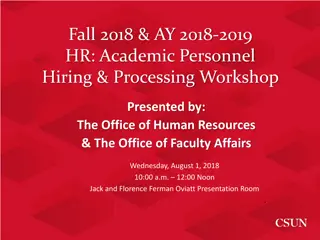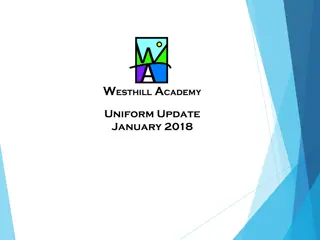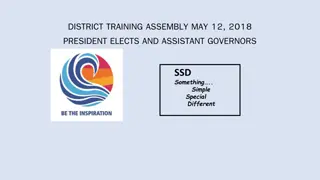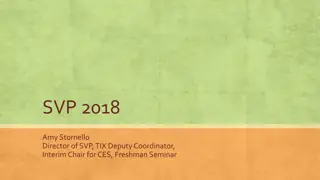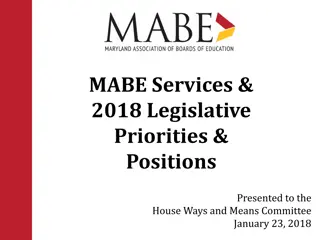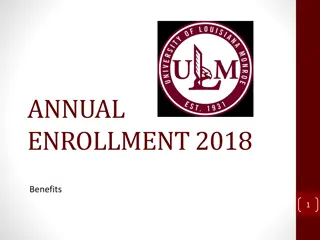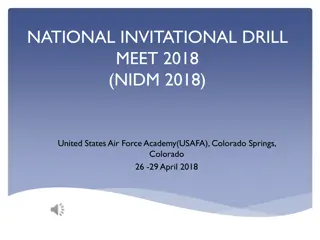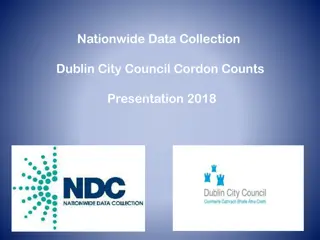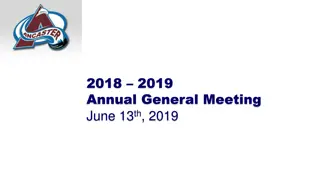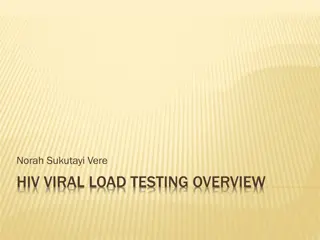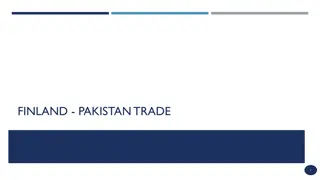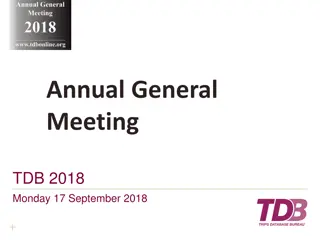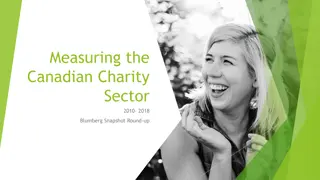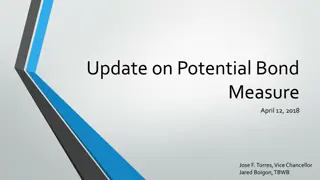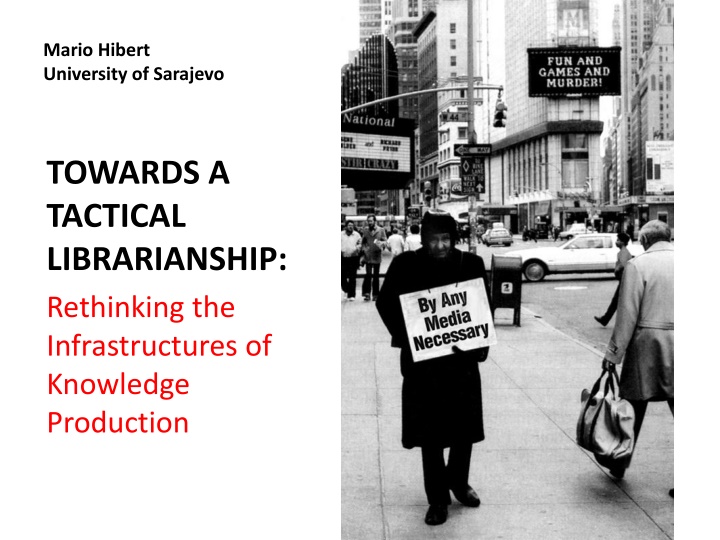
Rethinking Tactical Librarianship and Shadow Libraries: A Critical Perspective
Explore the intersections of tactical librarianship, shadow libraries, and the political economies of the commons through a critical lens. Discover how historical perspectives and avant-garde principles shape the discourse on access, repression, and resistance in knowledge production.
Download Presentation

Please find below an Image/Link to download the presentation.
The content on the website is provided AS IS for your information and personal use only. It may not be sold, licensed, or shared on other websites without obtaining consent from the author. If you encounter any issues during the download, it is possible that the publisher has removed the file from their server.
You are allowed to download the files provided on this website for personal or commercial use, subject to the condition that they are used lawfully. All files are the property of their respective owners.
The content on the website is provided AS IS for your information and personal use only. It may not be sold, licensed, or shared on other websites without obtaining consent from the author.
E N D
Presentation Transcript
Mario Hibert University of Sarajevo TOWARDS A TACTICAL LIBRARIANSHIP: Rethinking the Infrastructures of Knowledge Production
TACTICAL / SHADOW LIBRARIES Everyday practices of amateur librarians are becoming public shadow librarianship. HACKING FOR THE COMMONS Nicole A. Cook: equity, equality, liberation Historical perspectives of critical librarianship and tactical media practice demostrate that there have always been alternative ontologies, materialities and ideas in relation to the battle for our collective mind and imagination
political economies of the commons Shadow libraries were born to address political, economic and social issues specific to neoliberal constrains. Pushing the debate beyond the simple rhetoric of criminality and the accompanying claims of criminal profits!
ART OF THE WEAK! Overlapping critical pedagogy legacy of radical librarianship and tactical media: in seeking forms of resistance against power strategies Every profession is being radicalized as its practitioners refuse to draw any conflict of interest line between their lives and their work. (West, 1972) M. de Certeau (1984): tactical operating on the terrain of strategic power (in professional and in daily life practices). Tactical media are what happens when the cheap do it yourself media...are exploited by groups and individuals who feel aggrieved by or excluded from the wider culture (Garcia/Lovink 1997)
Tactical Media: a distinctive combination of art, technological experimentation, and political activism that arose in the early 1990s (inspired by media orientated interpretation of M. de Certeau s ideas) [R]ather than just doing critical reading and theorising, [radical media] practitioners go on to develop participatory events that demonstrate the critique through an experiential process (Critical Art Ensemble, 2001, p. 8).
History of policy battles over access: repression and expression perpetuating marginalization Librarians that practice critical librarianship strive to communicate the ways in which libraries and librarians consciously and unconsciously support systems of oppression challenging the status-quo of profession Tactical Media celebrated the avant-garde principles of freedom, disruption and experimentation. challenging the status-quo of digital networks
REVOLTING (META-DATA) LIBRARIANS Critical core of amateur- librarianship: commonality of countercultural imagination (commons based peer production) through organized networks of fragile knowledge infrastructures (Medak and Mars, 2015, 82). coming closer to autonomous art collectives and meta-data punks! (Wark, 2015) Critical core of librarianship counterculture : alternatives in press Librarians can generate information. (West, 1972). Learning to be a publisher, as well as librarian and journalist (West, 1982)
universalist in principle and unequal in practice! No matter how much of a spirit of egalitarian access, critical thought, self-education, preservation of cultural memory, intellectual freedom, and other noble values animates librarianship, a particular phenomenenon recently observed as shadow libraries seems to be re-triggering a critical attention on what makes librarianship so exciting: ontological question about its politics (Morrone, 2013, p. 2)
TACTICAL MEDIA: BY ANY MEDIA NECESSARY Emergence of users language : challenge to produce own media in support of political struggles. hit-and-run interventions The legacy of tactical media lies in the multiple and political usage of network technologies: challenge of building collective infrastructures
Affirmative disruption: reducing global asymmetries In an age where public libraries are an endangered institution, media collections run by amateur librarians emerge as new, vital topographies of sharing.
LIS theories and methodology Kimmo Touminen (1997): discoursive information needs need and meaning is created discoursively Donald O. Case (2007): constructionist information practices / practical information seeking processes David Weinberger (2007): the order of orders 1.) physical order; 2.) metadata; 3.) networks and protocols in a digitized platform decentralized user activities develop community (create and re-create itself), overshadowing two other orders! Anna Lundh (2010): information needs as a social interaction between individuals
REMINDER Fitting the technology to the law or fitting the law to the technology? We need to hear less from lawyers and lobbyists and more from artists (about who owns culture) L. Lessig
PUBLIC IMMAGINATION MANAGEMENT: GUERILLA OPEN ACCESS?! How today librarians produce sociabilty? How does knowledge flow around the globe due to peer produced, distributed archives? Technological innovation prevents focus on foundational idea of public library: universal access to knowledge for each member of the society producing knowledge about knowledge and knowledge transfer
Libertarian ideology of Sillicon Valley: at odds with social solutions! Today, the disourse around digital media tends towards a technological solutionism (Morozov 2014), thereby depriving socio-technical networks of their full potential to develop into new collectivities. Solutionism underestimates social costs and assumes that social issues can be solved by individuals and private interests (and some may be) but where universality, equality and fairness need to be provided regardless of skill or wealth this is not the case. these sorts of things can only be provided socially, as public goods.
Creative crisis management ??? Predominance of network-model which favors technical connectivity over social collectivity. language of disruption as Trojan horse Shadow Library: is a form of custodianship that goes against the techno-capitalist imperative of innovation imposed by policy makers and managers.
(EVERY DAY) PLATFORM CAPITALISM We are stuck with a concept of eternal capitalism which changes only in appearance and never in essence: tactical media practices become part of our every day life The value created by user-generated content is being skimmed by Internet-corporations which prevent atomized individuals to form political collectives. PLATFORM COOPERATIVISM?
Techno-politics of tactical librarianship illicit information communities Re-imagining access: changing/challenging publishing ecologies Radical librarians task: exploring the role that media and technology play in the post-industrial capitalism engage in critical re-articulation of radical media transformative potential: bottom-up librarianship and the creation of widely and freely accessible repositories.
PUBLIC LIBRARY MEMORY OF THE WORLD
Back to basics: free access to books for every member of society library catalog librarian With books ready to be shared, meticulously cataloged, everyone is a librarian. When everyone is librarian, library is everywhere. (Medak; Mars, 2015) memoryoftheworld.org
synergy of two efforts Public Library/Memory of the World explores and develops distributed internet infrastructures for amateur librarians. First, it makes the case for the institution of public library and its principle of universal access to knowledge. Second, it is an exploration and development of distributed internet infrastructure for amateur librarians. If Public Library is a proposal Memory of the World is its proof of concept and reference implementation.
Amateur Librarian A Course in Critical Pedagogy Taking back the autonomy of knowledge production: This curriculum covers a range of topics, from immediately applicable workflows for scanning, sharing and using e-books, over politics and tactics around custodianship of online libraries, to applied media theory implicit in the practices of amateur librarianship. http://www.mondotheque.be/wiki/index.php/Am ateur_Librarian_-_A_Course_in_Critical_Pedagogy
Building of horizontal alliances: SCHOLAR-LED COMMONS Radical Open Access a radical alternative to the conservative versions of open access that are currently being put forward by commercially- oriented presses, funders and policy makers. Openness and Access Producing critiques of the status quo Experimentation New and underrepresented cultures of knowledge Ethics of care
Radical Open Access Collective (ROAC) was formed immediately following the 2015 conference at the Coventry University (UK) as a horizontal alliance between like-minded groups dedicated to the sharing of skills, tools and expertise. Since then it has grown to a community of over 40 scholar-led, not-for-profit presses, journals and other projects. The members of this alliance are all invested in reimaging publishing.
Pirate Philosophy explores how we can produce not just new ways of thinking about the world, which is what theorists and philosophers have traditionally aspired to do, but new ways of actually being theorists and philosophers in this time of riots. Pirate Philosophy: For a Digital Posthumanities (G. Hall, 2016, xiv )
debating OA Too much of the debate over legitimate forms of open access now seems to be about how to use the provision of access to research as a means of exercising forms of governmental and commercial control (via audits, metrics, discourses of transparency and so on).
The imperative of opennes and its discontents... The dominant models of open access have combined with a neoliberal economy resulted in new inequalities in the academic sectors. a lack of vision and concrete utopian spirit in large parts of academia. Reluctance in advancing commons- and public- service based models of non-profit open access failure in making open access a common and public good. Library-based open publishing initiatives Only a small minority of libraries participate in library-based publishing (Adema et al., 2017, p. 9)
OPEN DIVIDE Dominance of corporate (non-open access) journal publishing creates the risks and realities of oligopoly and monopoly-practices and -pricing, exclusion from access for institutions, universities, libraries and individuals who cannot afford purchasing access, which not only implies unequal access, but is also a structurally-racist practice that disadvantages scholars and institutions in developing countries. (Fuchs; Sandoval, 2013)
TACTICAL LIBRARIANSHIP Tactical librarianship are what happens when practical articulations and discursive re- articulations of radical media are exploited by amateur librarians and postdigital scholars. subverting the dominant form of cultural production new hybrid spaces (Kluitenberg 2011), provide a sphere of activity for aesthetic, political and social practices. Library/Media activism, if taken seriously, is not simply defined by an aestheticisation of politics, but rather by a politicisation of aesthetics (W. Benjamin).
CONCLUSION Illegal openness as precarious real-world utopia and/or radical open access Tactical librarianship may be seen as another utopian avant-guarde perspective but, as a matter of fact, it is TACTICAL WIN ...forms of the move from writing to publishing, from art-making to curating, from research to archiving. a move from narrative to database.
... The free-floating intellectual may occupy himself with problems because of their inherent intereset and importance, perhaps to little effect. The professional, however, tends to define his problems on the basis of the technique that he has mastered, and has a natural desire to apply his skills. N. Chomsky ( Objectivity and Liberal Scholarship , 1969) We invented our social arrangements; we can alter them when they are working against us. There are no gods out there to strike us dead if we do. (L. Menand)
Custodians.online We demonstrate daily, and on a massive scale, that the system is broken. We share our writing secretly behind the backs of our publishers, circumvent paywalls to access articles and publications, digitize and upload books to libraries. This is the other side of 37% profit margins: our knowledge commons grows in the fault lines of a broken system. We are all custodians of knowledge, custodians of the same infrastructures that we depend on for producing knowledge, custodians of our fertile but fragile commons. To be a custodian is, de facto, to download, to share, to read, to write, to review, to edit, to digitize, to archive, to maintain libraries, to make them accessible. It is to be of use to, not to make property of, our knowledge commons. In solidarity with Library Genesis and Sci-Hub (LETTER, 30 November 2015

